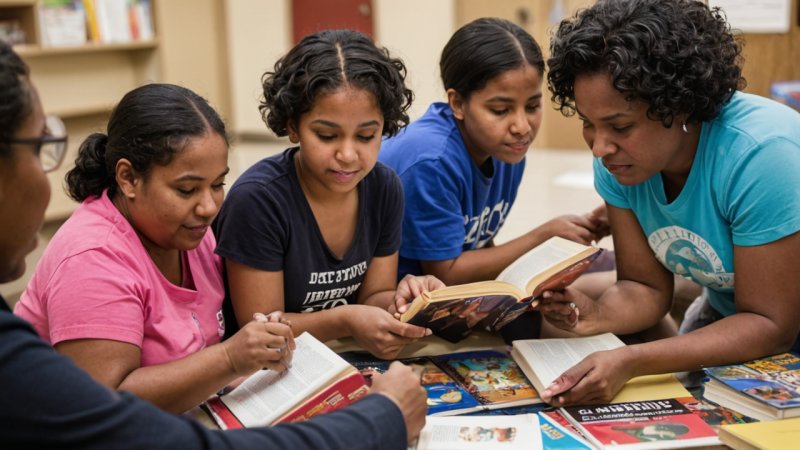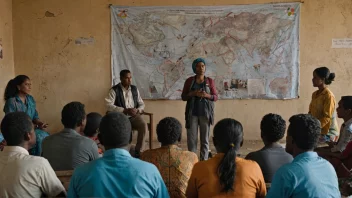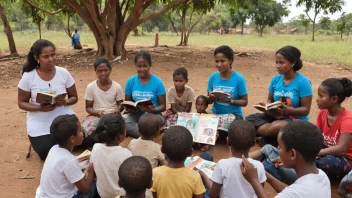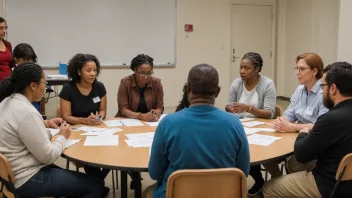Literacy is a cornerstone of personal and community development, and yet millions of people around the world are still unable to read or write effectively. Developing effective literacy campaigns in your community is not just about teaching skills; it's about empowering individuals, fostering self-esteem, and promoting social justice. This article explores how you can create impactful literacy initiatives that resonate with your community's unique needs.
First, understanding the specific literacy challenges in your community is essential. Conduct surveys or hold community meetings to gather data on literacy levels, age demographics, and specific barriers to learning. This information will help tailor your campaign to address the root causes of illiteracy. For instance, if you discover that many adults lack basic reading skills due to a lack of resources, your campaign can focus on adult education programs.
Next, collaboration is key. Partner with local schools, libraries, and community organizations to amplify your efforts. These partnerships can provide access to resources, venues, and volunteers who are passionate about literacy. Engaging local stakeholders ensures that your campaign is well-rounded and supported by various segments of the community.
When designing your literacy program, consider incorporating diverse teaching methods that cater to different learning styles. Some individuals may benefit from visual aids, while others may find hands-on activities more engaging. Offering classes at varying times can also accommodate different schedules, making it easier for people to participate. Additionally, consider providing materials in multiple languages if your community is linguistically diverse.
Promotion is another vital aspect of launching a successful literacy campaign. Use social media, local newspapers, and community bulletin boards to spread the word. Highlight success stories from previous participants to inspire others to join. Organize events such as reading days or literacy fairs that draw attention to your cause and encourage community participation.
Moreover, don’t underestimate the power of technology. Online resources and platforms can enhance your literacy campaign by providing access to a wider audience. Consider offering virtual classes or creating an online repository of educational materials that people can access at their convenience.
Lastly, it’s important to celebrate achievements, both big and small. Recognizing the progress of participants not only motivates them but also encourages others to join. Host graduation ceremonies or recognition events to honor those who have completed literacy programs, fostering a sense of community and accomplishment.
In conclusion, developing effective literacy campaigns requires a comprehensive understanding of your community, strong partnerships, diverse teaching methods, effective promotion, and a commitment to celebrating achievements. By focusing on these elements, you can create a literacy initiative that not only teaches skills but also empowers individuals and strengthens the community as a whole.






